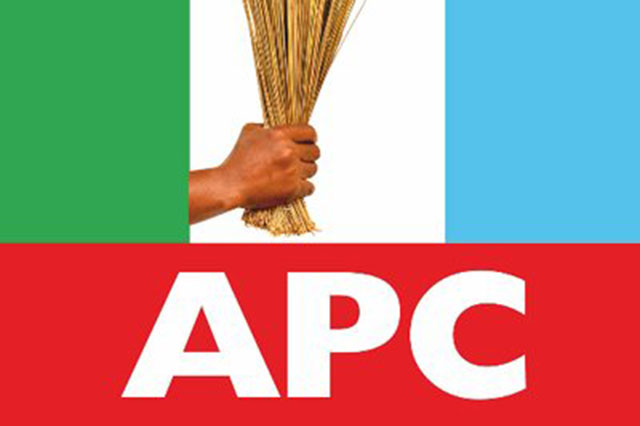Lagos – Nigeria’s ruling APC party starts primaries this week to choose its candidate for the 2023 election with President Muhammadu Buhari urging consensus to overcome divisions in the party ranks.
With no clear frontrunner, the All Progressives Congress or APC’s splits have intensified especially after the opposition People’s Democratic Party chose veteran Atiku Abubakar as its challenger for next year’s ballot.
Among those vying are former Lagos governor and APC strongman Bola Tinubu, Vice President Yemi Osinbajo, former transport minister Rotimi Amaechi and Buhari’s loyalist Senate president Ahmad Lawan.
Buhari, who steps down after his two terms allowed in the constitution, has given no public support to a preferred candidate to take over governing Africa’s most populous country.
But he has urged the party’s local state governors and party leaders to back a single candidate to ensure the APC’s victory.
Nigeria’s Buhari seeks consensus candidate for ruling party
“I charge you to recognise the importance of the stability and unity of the party, which cannot be overemphasised,” Buhari said in a statement over the weekend.
Delegates start to arrive Monday in the capital Abuja for primaries with voting expected on Tuesday.
Part of the APC’s debate is over so-called “zoning” – an unofficial agreement among political elites that Nigeria’s presidency should rotate between candidates from the south and north of the country.
That accord is meant to act as a form of power-sharing balance in a country almost equally split between the mostly Christian south and the predominantly Muslim north.
After northern Muslim Buhari, most observers have expected the presidency to return to a candidate from the south.
But the PDP chose Abubakar, a wealthy northern Muslim, former vice president and political stalwart who will be on his sixth bid to win the nation’s top political post.
Nigeria sets new date for 2023 elections
The opposition’s choice to ignore “zoning” has triggered speculation over how the APC’s candidate will appeal to the north, where voter numbers and participation are traditionally higher.
The APC itself is an alliance of smaller parties who came together to secure Buhari’s victory in 2015 and has often struggled with internal strife.
“They need the strong hand of an incumbent president,” said Chidi Odinkalu, Nigerian analyst and lecturer at the Fletcher School of Law & Diplomacy in Tufts University.
“The APC does not have… the internal governance mechanisms to manage the physics that you let loose when all those forces come together.”
Lagos strongman
Another consideration for the APC will be an unwritten accord for Muslim presidential candidates to chose a Christian vice president on their ticket and vice versa.
Among the APC leading hopefuls Tinubu is a southern Muslim, Osinbajo is a southern Christian pastor and Amaechi, a Christian, is from the southern oil region while Lawan is the only leading APC northern Muslim candidate.
Tinubu, who was instrumental in helping pull APC ranks together and bringing Buhari to power, last week caused waves with a blunt claim to the presidency.
“I helped Buhari to be president. I met him in Kaduna and convinced him to run after he had given up on his bid,” Tinubu said. “It is my turn to be president.”
The two main candidates will battle for the presidency next February as Nigeria struggles with a 12-year-old jihadist insurgency in the northeast and attacks by criminal kidnap gangs in the northwest.
Nigeria’s opposition names former VP as 2023 election candidate
Highlighting insecurity, gunmen on Sunday attacked a church with explosives in the relatively safe southwest, killing at least 21 worshippers during a morning service.
Nigeria, Africa’s largest economy, is also still recovering from the global pandemic and feeling the impact of the Ukraine war which has pushed up fuel and food prices across the continent.
The PDP dominated Nigeria’s politics for a decade and a half after the country’s 1999 return to democracy after years of military rule.
A long-term political operator, Abubakar was vice president during the first government after the end of the military dictatorship.
But the APC managed to end the PDP’s dominance in 2015 with Buhari promising to use his security credentials as a former military man and also tackle the country’s rife corruption.
Follow African Insider on Facebook, Twitter and Instagram
Source: AFP
Picture: Twitter/@DrAmoakohene1
For more Africa news, visit Africaninsider.com


